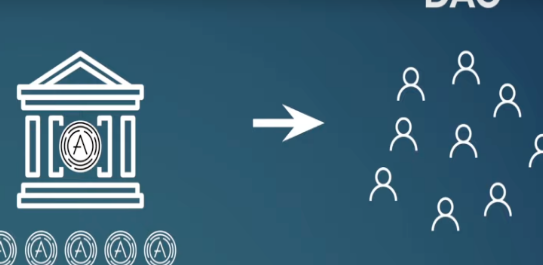The Role of Governance Tokens in Cryptocurrency Development
Governance tokens have emerged as a cornerstone in the cryptocurrency ecosystem, enabling decentralized decision-making and fostering community-driven development. These tokens are integral to decentralized autonomous organizations (DAOs) and blockchain protocols, ensuring projects align with the interests of their participants while preserving the ethos of decentralization.
What Are Governance Tokens?
Governance tokens are cryptocurrencies designed to grant holders voting rights within blockchain-based projects. Unlike traditional organizational structures where decisions are made by a centralized authority, governance tokens empower communities to shape the future of a project. This includes decisions on protocol upgrades, fee structures, resource allocation, partnerships, and more.
These tokens function similarly to shares in a company but operate within decentralized frameworks. Token holders can propose and vote on changes, ensuring transparency and accountability while reducing the risk of centralization.
Key Benefits of Governance Tokens
Governance tokens play a pivotal role in cryptocurrency development due to their unique advantages:
-
Decentralized Decision-Making: They enable users to make critical decisions without relying on centralized entities, promoting fairness and inclusivity.
-
Community Engagement: By giving token holders voting rights, governance tokens incentivize active participation and foster a sense of ownership within the community
-
Transparent Governance: Votes are recorded on-chain, ensuring decisions are auditable and tamper-proof
-
Flexibility and Agility: Decentralized governance allows for swift decision-making without bureaucratic delays
-
Incentivizing Contributions: Token holders may be rewarded for their contributions to the ecosystem, such as providing liquidity or supporting development initiatives
How Governance Tokens Work
Governance tokens operate through smart contracts that automate voting processes. Token holders cast votes weighted by the number of tokens they own. Once a proposal receives sufficient approval, changes are implemented automatically via consensus mechanisms. This ensures no single entity can dominate decision-making
Applications of Governance Tokens
Governance tokens are utilized across various aspects of cryptocurrency projects. Below is a table summarizing their applications:
| Area | Examples |
|---|---|
| Protocol Upgrades | Adding new features or improving security |
| Fee Structures | Adjusting transaction or service fees |
| Resource Allocation | Budgeting for marketing or development |
| Partnerships & Integrations | Collaborating with other platforms |
| Tokenomics Modifications | Changing inflation rates or staking rewards |
| Community Initiatives | Funding educational programs or events |
| Regulatory Compliance | Adapting to legal requirements |
| Privacy Policies | Managing user data securely |
Challenges and Future Outlook
While governance tokens offer numerous benefits, they also face challenges such as unequal token distribution, which may lead to disproportionate influence by large holders. Additionally, designing effective governance mechanisms tailored to each project’s needs remains complex
Looking ahead, governance tokens will likely continue to evolve, driving innovation in decentralized finance (DeFi) and blockchain ecosystems. As adoption grows, these tokens will play an increasingly vital role in ensuring sustainable and community-driven cryptocurrency development.
Governance tokens exemplify the power of decentralization in action, proving that collective decision-making can lead to robust and transparent systems that benefit all participants.
Also Read :
